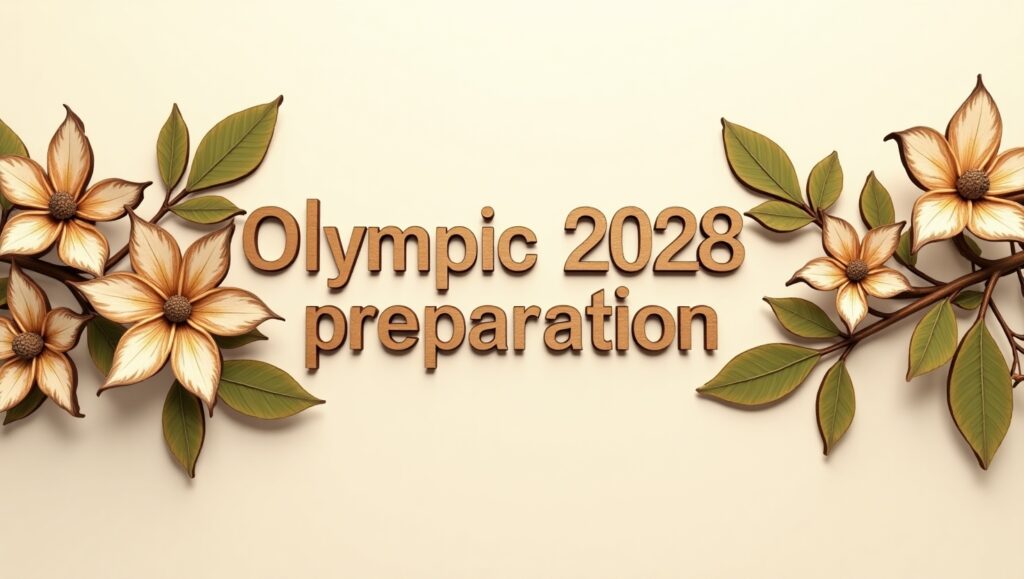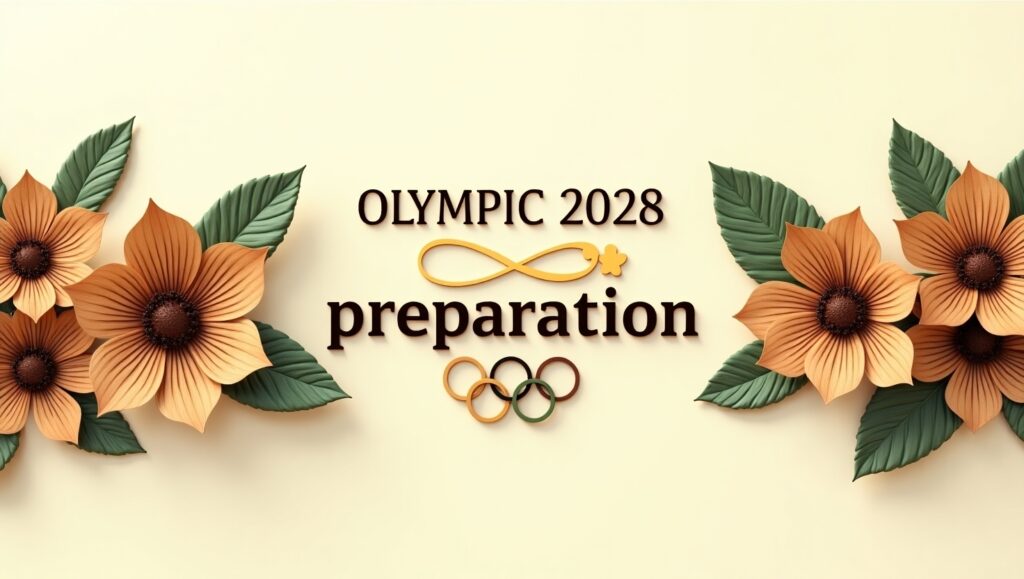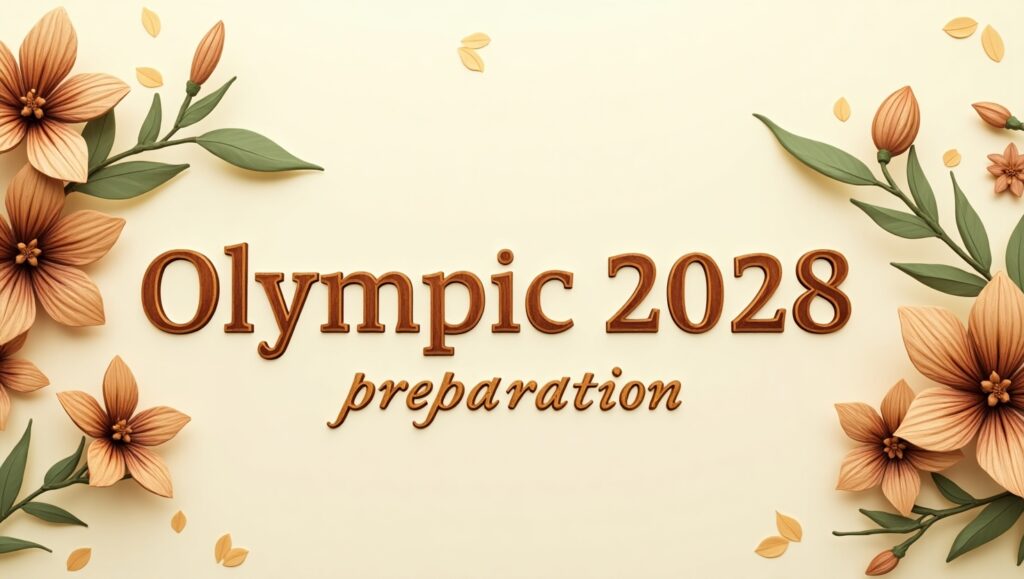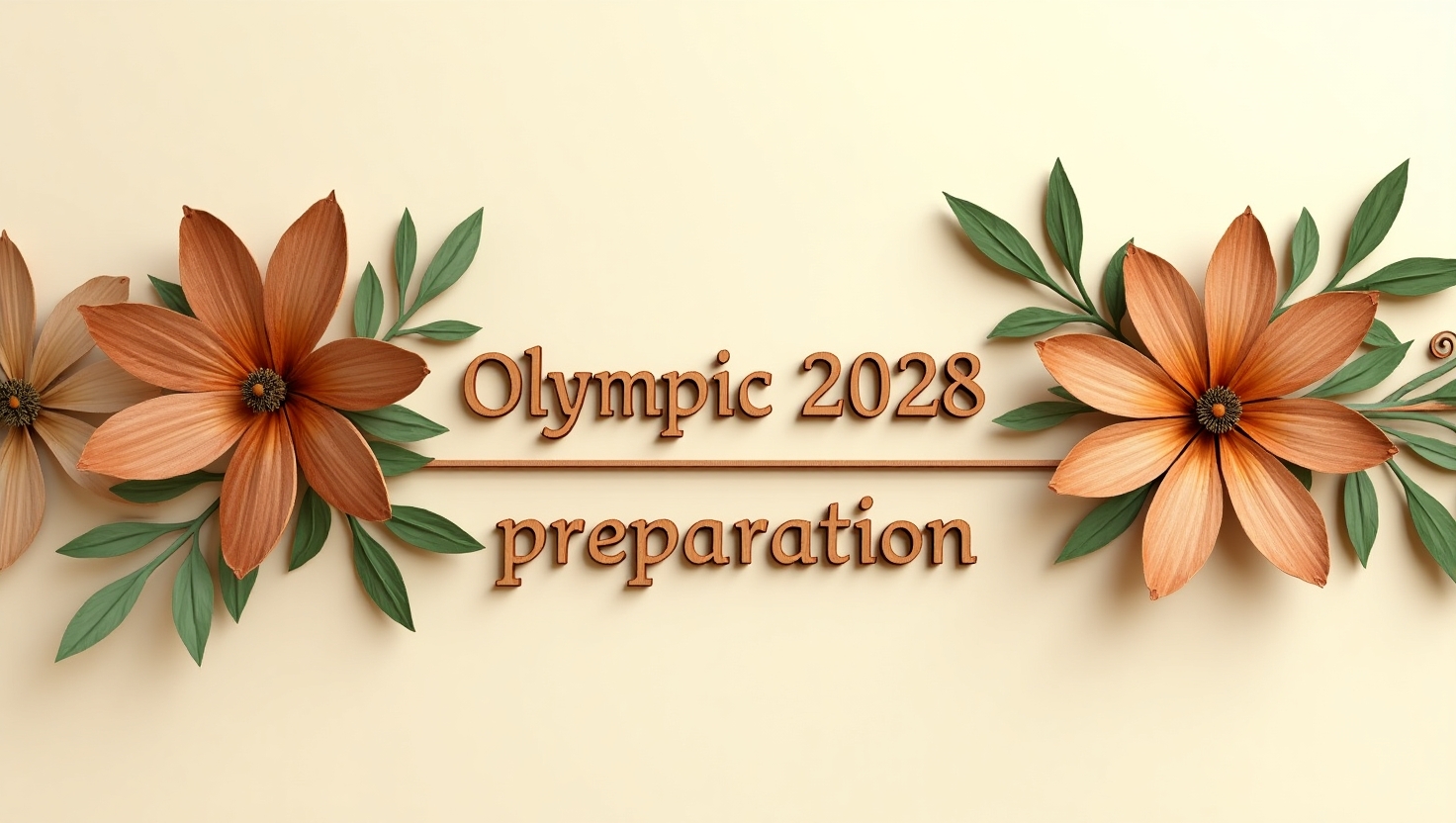As the world looks forward to the 2028 Summer Olympics in Los Angeles, preparations are already in full swing to provide an outstanding event that honours global unity, sport, and innovation. Scheduled to begin on July 14, 2028, the LA28 Olympic Games aim to be one of the most technologically advanced, sustainable, and inclusive Olympics in history.
From venue enhancements and athlete amenities to digital fan experiences and environmental aims, the route to LA28 is shaping up as a stunning global effort. In this post, we go deep into the present stage of Olympic 2028 preparations, outlining what’s being done, how it’s being done, and what we may expect when the torch is lit.

Why LA Was Chosen for the 2028 Olympics
Los Angeles, California, was formally awarded the Games of the XXXIV Olympiad in 2017 after Paris was granted the 2024 edition. This will be LA’s third time hosting the Summer Olympics—previously in 1932 and 1984. The city’s enormous infrastructure, international reputation, diversified population, and history of staging large-scale events made it a perfect choice.
The International Olympic Committee (IOC) lauded Los Angeles for its focus on sustainability, limited new building, and dependence on existing world-class venues, which considerably minimizes cost and environmental impact.
Key Infrastructure and Venue Plans
One of the main elements of the LA28 Olympics is its commitment to leveraging existing venues to avoid large, unneeded development costs—something that has plagued many former Olympic host cities. LA’s sports infrastructure is already world-renowned, and renovations are underway to guarantee venues fulfill Olympic requirements.
Main Venues Include: SoFi Stadium: The likely destination for the opening and closing ceremonies.
Crypto.com Arena (previously Staples Center): Expected to host basketball and gymnastics.
UCLA and USC Campuses: Will function as athlete villages and competition sites.
Dignity Health Sports Park: Hosting several sports including rugby and tennis.
LA Memorial Coliseum: A historic arena that will again be used, extending its Olympic history from 1932 and 1984.
Each of these sites is receiving minor upgrades to increase accessibility, technology integration, and seating capacity.
Sustainability Goals
A prominent component of the LA28 Games is sustainability. Organizers have pledged to providing a climate-positive Olympics, aiming to offset more carbon than the event creates. This includes:
Using electric transportation for athletes and authorities
Upgrading public transit infrastructure across the city
Investing on sustainable energy for all Olympic sites
Promoting zero-waste efforts at venues
The LA28 group is also engaging with local environmental organizations to guarantee minimal harm to ecosystems and long-term benefits for the city.

Technological Innovation
The Olympics 2028 will likewise be a tech-driven experience. From virtual reality (VR) broadcasting and AI-enhanced security to smart ticketing and immersive fan zones, the usage of cutting-edge technology will be prevalent.
Fans throughout the globe will enjoy:
Augmented Reality (AR) viewing experiences at home
Mobile apps for real-time updates, ticketing, and navigation
Smartwear for athletes to measure performance
5G connectivity across locations for smooth streaming and data sharing
Los Angeles, as a global digital hub, is perfectly positioned to integrate these advancements on a massive scale.
Community Engagement and Youth Inclusion
The LA28 Organizing Committee has underlined the importance of community involvement and youth empowerment. Through the “PlayLA” program, local youngsters are having access to free or low-cost sports activities in the lead-up to the Olympics.
This effort intends to:
Increase involvement in Olympic and Paralympic sports
Promote healthy lifestyles
Create a legacy of sport for generations to come
In addition, community forums and collaborations with schools, sports groups, and NGOs are ensuring that locals have a say in the planning process.
Economic and Social Impact
Hosting the Olympics is expected to bring billions in economic activity to Los Angeles. Thousands of temporary jobs are being created in construction, transportation, hospitality, and event management. Local businesses, notably those in tourism, are prepared for a significant boom.
Socially, the Olympics are expected to:
Showcase LA’s diversity and culture on a worldwide platform
Inspire the next generation of athletes
Strengthen civic pride and international collaboration

Paralympics 2028: Elevating Inclusion
For the first time in Olympic history, the LA28 Paralympic Games will be promoted with comparable priority and publicity as the Olympics. New accessibility features, athlete support programs, and broadcast rights are being established to guarantee that Paralympians receive the respect they deserve.
Countdown to LA28: What’s Next?
With just three years to go, the countdown to Olympics 2028 is building up momentum. The logo has been unveiled, featuring a dynamic “A” that adjusts across digital platforms—symbolizing innovation and diversity. Branding efforts are being put out globally, volunteers are being sought, and agreements with key sponsors are ongoing.
The LA28 organizing committee is working closely with the IOC, U.S. Olympic & Paralympic Committee, and local authorities to prepare logistics, security measures, and cultural programming.
Conclusion
The Olympics 2028 preparations represent a new vision of sport—one that values sustainability, technology, community, and global solidarity. As Los Angeles gears up to welcome the world, it promises not just another athletic event but a revolutionary cultural extravaganza that inspires millions.
Whether you’re a fan, an athlete, or a local, LA28 offers something for everyone. With its bold planning and inclusive vision, the 2028 Summer Olympics will be hailed as a precedent for how future Games are built and delivered.



